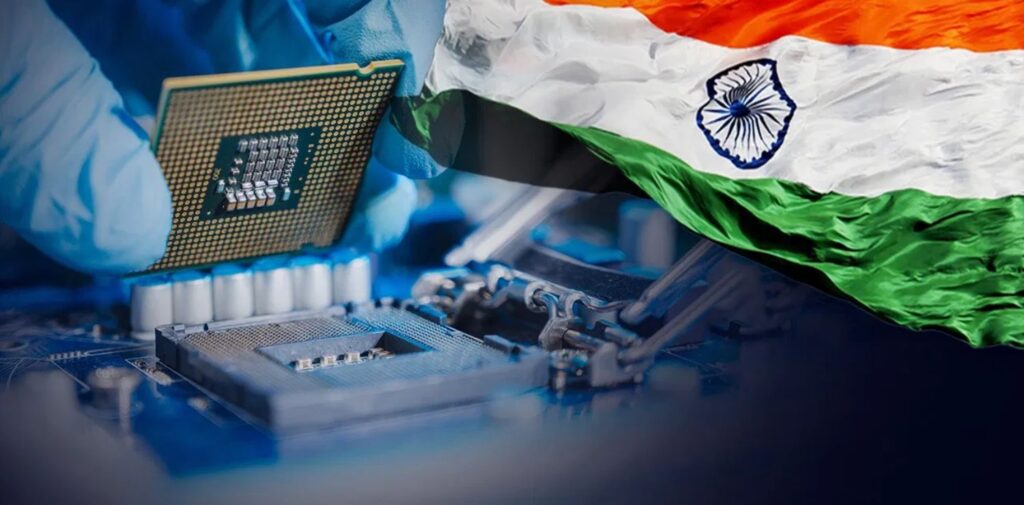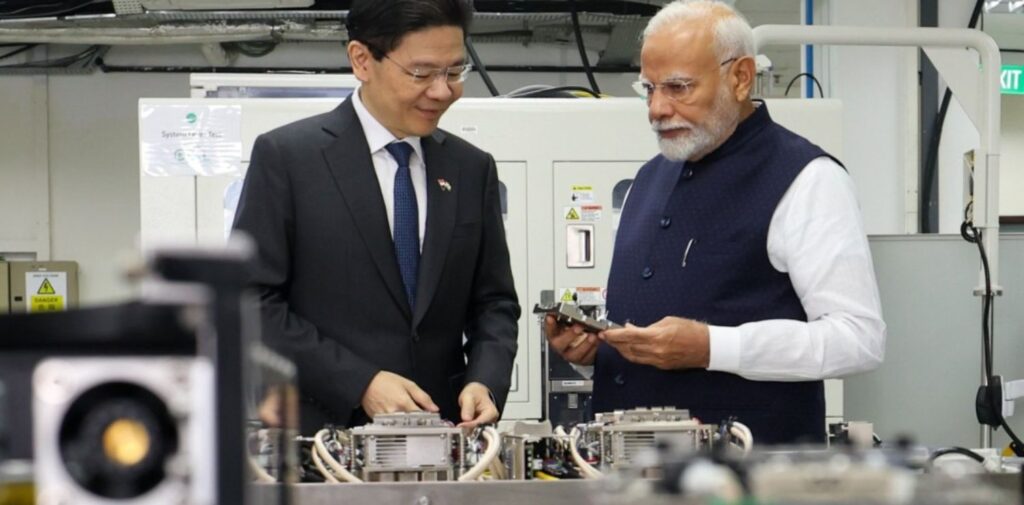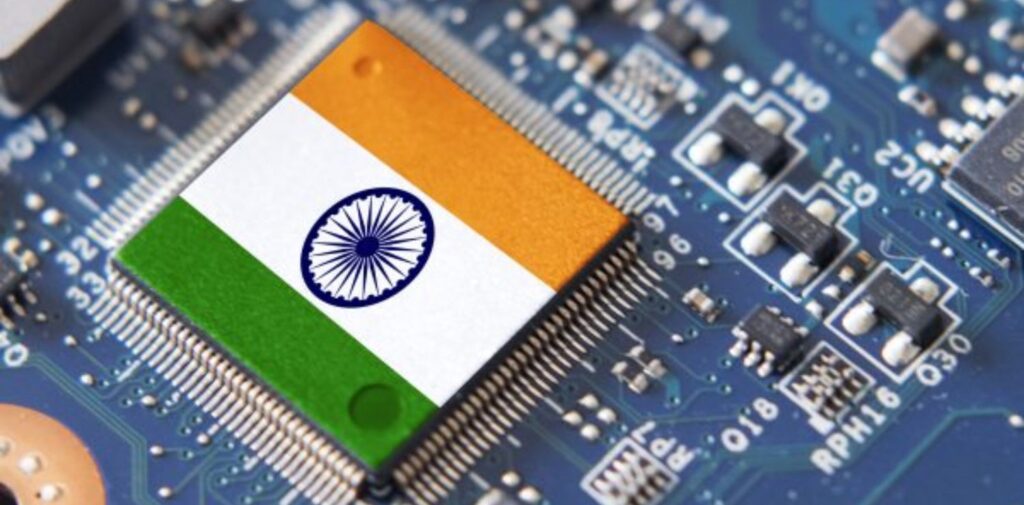The India semiconductor industry has been a critical driver of technological advancement globally, and India’s recent strides in this sector demonstrate its ambition to become a key player. Several substantial investments, particularly by Tata, Micron, and CG Power, are not only strengthening the nation’s semiconductor industry but also aligning with global technological trends. This article delves into the importance of these investments, their impact on India’s economy, and how international collaborations, such as the recent India-Singapore MoUs on semiconductors, are propelling India toward a digital future.
Key Investments in India Semiconductor Industry
India has attracted significant semiconductor investments recently, particularly in Gujarat and Assam. These projects signal a new era of industrial development in the country, focusing on making India a global semiconductor hub.
Tata in Gujarat – ₹91,526 crore: Tata has committed to a massive ₹91,526 crore investment in Gujarat. This project aims to establish semiconductor manufacturing facilities, addressing the global chip shortage and meeting rising demand for electronics.
Tata in Assam – ₹27,120 crore: Besides Gujarat, Tata has also focused on Assam, with an investment of ₹27,120 crore. This initiative aims to boost regional development and diversify India’s industrial landscape.

Micron in Gujarat – ₹22,516 crore: U.S.-based Micron’s investment in Gujarat strengthens India’s semiconductor ecosystem. The project will focus on semiconductor packaging, testing, and manufacturing.
CG Power in Gujarat – ₹7,584 crore: Another significant player, CG Power, is investing ₹7,584 crore in Gujarat, targeting power electronics and semiconductor components essential for sectors like renewable energy and automotive.
Why These Investments Matter
India’s semiconductor industry is crucial to the global economy. Chips power everything from smartphones to electric vehicles, and their demand is rapidly increasing. India’s strategic investments in this sector address both domestic needs and international supply chain gaps.
These projects will generate employment, improve technological capabilities, and create infrastructure that supports innovation. By attracting both domestic and international players, India is laying the foundation for sustainable industrial growth.
India’s Ambitions to Become a Global Tech Hub
India’s goal is to emerge as a significant player in the semiconductor sector, contributing to global supply chains and reducing reliance on imports. This vision aligns with the government’s “Make in India” initiative, which encourages domestic manufacturing across various sectors, including electronics, defense, and telecommunications.

These semiconductor investments are not just about production but also about creating a robust ecosystem that fosters innovation, research, and development. India aims to become a leader in advanced technologies like AI, 5G, and IoT (Internet of Things), which rely heavily on semiconductor chips.
The India-Singapore MoUs: Strengthening Global Collaboration
India’s vision of becoming a semiconductor hub is further supported by international collaborations. Recently, India and Singapore signed several landmark Memorandums of Understanding (MoUs) focused on semiconductors and technology. These agreements mark a significant step in enhancing India’s semiconductor capabilities and integrating with the global market.

These MoUs between India and Singapore will help both countries strengthen their technological futures. Singapore, already a tech leader, will provide valuable expertise, and India will benefit from technological knowledge transfer and shared innovation.
The agreements emphasize research collaboration, skills development, and the creation of joint ventures, ensuring that both nations remain competitive in the rapidly evolving tech landscape.
How the MoUs Complement India’s Semiconductor Goals
The India-Singapore collaboration is a strategic move that aligns with India’s growing semiconductor investments. By joining forces with a technologically advanced country like Singapore, India gains access to cutting-edge knowledge, best practices, and global networks.
These MoUs will not only facilitate technology transfer but also help India build a skilled workforce capable of driving future semiconductor innovation. Additionally, Singapore’s strong semiconductor ecosystem can offer valuable insights to Indian companies looking to expand globally.

Challenges Ahead
While India’s semiconductor investments and global collaborations are promising, challenges remain. Building a semiconductor ecosystem from the ground up requires significant infrastructure, skilled labor, and research capabilities. Moreover, the global semiconductor industry is highly competitive, with established players like the U.S., Taiwan, South Korea, and China leading the market.
For India to compete, it will need to continue fostering innovation, provide incentives for research and development, and strengthen its intellectual property laws to protect and encourage new technologies.
Conclusion: A Promising Future for India’s Semiconductor Industry
India’s semiconductor investments, particularly by Tata, Micron, and CG Power, signal the country’s strong commitment to becoming a global tech leader. These initiatives, combined with international collaborations like the India-Singapore MoUs, are paving the way for India’s digital future.
The road ahead will not be without challenges, but the country’s focus on innovation, collaboration, and strategic investments places it in a strong position to grow its semiconductor industry. As India continues to strengthen its digital and technological foundations, it is clear that the nation is poised to play a pivotal role in shaping the future of global technology.



